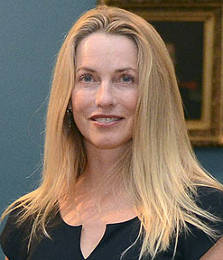As more women enter the upper reaches of wealth, should we expect to see different results from their giving?
Interesting article by Anya Kamanetz of Fast Company Magazine.
Sara Blakely, founder of the privately held Spanx, just became the first self-made female billionaire to sign onto The Giving Pledge, an effort spearheaded by Bill and Melinda Gates and Warren Buffett that has had dozens of the world’s billionaires sign on to give away more than half of their wealth, either during their lifetime or after their death.
Sara Blakely, founder of the privately held Spanx, just became the first self-made female billionaire to sign onto The Giving Pledge, an effort spearheaded by Bill and Melinda Gates and Warren Buffett that has had dozens of the world’s billionaires sign on to give away more than half of their wealth, either during their lifetime or after their death.

Another member of the still tiny circle of female billionaires, Steve Jobs’s widow, is stepping out publicly for the first time as a philanthropist. Steve Jobs was criticized for not giving much money away, at least publicly, during his lifetime. But Laurene Powell Jobs is now speaking to issues as diverse as education and gun control.
The phenomenon of women being personally responsible for giving away billions is really new. Currently women hold almostthree-fourths of all jobs, and almost half of all CEO positions, in the nonprofit sector. But they are much more underrepresented at the board and executive level at the really big large charities, the ones with more than $25 million in the bank.
In big philanthropy, as in politics or business, it’s worth asking how or whether having women calling the shots will make a difference in the way things are done. As we’ve seen in our coverage of the League of Extraordinary Women, women seem to stand out for their personal involvement with the causes they support and especially for their commitment to women’s and girls’ economic development.
Feminist philanthropy is not special treatment. Besides the moral imperative to combat widespread violence and exploitation, there’s strong empirical evidence to support the strategy of aiding an entire economy by educating and empowering the female members.
But does the tendency to make giving personal really make for the most effective giving? Or does it cut against the grain of impact analysis and bottom-line-driven accountability? The multiple scandals plaguing girls’ schools started by both Oprah and Madonna in Africa are cautionary tales of what can happen when the desire to identify with a cause eclipses due diligence--though arguably they are examples of the weaknesses of celebrity philanthropy, not women’s philanthropy per se.
One hopes that Powell Jobs, Blakely, and future women who ascend to positions of real power in the nonprofit world will follow the same tendencies that make women, statistically, better investors than men: a lack of overconfidence, a desire for self-control and financial discipline that stops them from chasing a risky market.

No comments:
Post a Comment